第78章 Chapter 26(4)
"Feeling that the condition of the race was unendurable, they had no clear hope of anything better. They believed that the evolution of humanity had resulted in leading it into a cul de sac, and that there was no way of getting forward. The frame of men's minds at this time is strikingly illustrated by treatises which have come down to us, and may even now be consulted in our libraries by the curious, in which laborious arguments are pursued to prove that despite the evil plight of men, life was still, by some slight preponderance of considerations, probably better worth living than leaving. Despising themselves, they despised their Creator. There was a general decay of religious belief. Pale and watery gleams, from skies thickly veiled by doubt and dread, alone lighted up the chaos of earth. That men should doubt Him whose breath is in their nostrils, or dread the hands that moulded them, seems to us indeed a pitiable insanity;but we must remember that children who are brave by day have sometimes foolish fears at night. The dawn has come since then.
It is very easy to believe in the fatherhood of God in the twentieth century.
"Briefly, as must needs be in a discourse of this character, Ihave adverted to some of the causes which had prepared men's minds for the change from the old to the new order, as well as some causes of the conservatism of despair which for a while held it back after the time was ripe. To wonder at the rapidity with which the change was completed after its possibility was first entertained is to forget the intoxicating effect of hope upon minds long accustomed to despair. The sunburst, after so long and dark a night, must needs have had a dazzling effect. From the moment men allowed themselves to believe that humanity after all had not been meant for a dwarf, that its squat stature was not the measure of its possible growth, but that it stood upon the verge of an avatar of limitless development, the reaction must needs have been overwhelming. It is evident that nothing was able to stand against the enthusiasm which the new faith inspired.
"Here, at last, men must have felt, was a cause compared with which the grandest of historic causes had been trivial. It was doubtless because it could have commanded millions of martyrs, that none were needed. The change of a dynasty in a petty kingdom of the old world often cost more lives than did the revolution which set the feet of the human race at last in the right way.
"Doubtless it ill beseems one to whom the boon of life in our resplendent age has been vouchsafed to wish his destiny other, and yet I have often thought that I would fain exchange my share in this serene and golden day for a place in that stormy epoch of transition, when heroes burst the barred gate of the future and revealed to the kindling gaze of a hopeless race, in place of the blank wall that had closed its path, a vista of progress whose end, for very excess of light, still dazzles us. Ah, my friends! who will say that to have lived then, when the weakest influence was a lever to whose touch the centuries trembled, was not worth a share even in this era of fruition?
"You know the story of that last, greatest, and most bloodless of revolutions. In the time of one generation men laid aside the social traditions and practices of barbarians, and assumed a social order worthy of rational and human beings. Ceasing to be predatory in their habits, they became co-workers, and found in fraternity, at once, the science of wealth and happiness. `What shall I eat and drink, and wherewithal shall I be clothed?' stated as a problem beginning and ending in self, had been an anxious and an endless one. But when once it was conceived, not from the individual, but the fraternal standpoint, `What shall we eat and drink, and wherewithal shall we be clothed?'--its difficulties vanished.
"Poverty with servitude had been the result, for the mass of humanity, of attempting to solve the problem of maintenance from the individual standpoint, but no sooner had the nation become the sole capitalist and employer than not alone did plenty replace poverty, but the last vestige of the serfdom of man to man disappeared from earth. Human slavery, so often vainly scotched, at last was killed. The means of subsistence no longer doled out by men to women, by employer to employed, by rich to poor, was distributed from a common stock as among children at the father's table. It was impossible for a man any longer to use his fellow-men as tools for his own profit. His esteem was the only sort of gain he could thenceforth make out of him. There was no more either arrogance or servility in the relations of human beings to one another. For the first time since the creation every man stood up straight before God. The fear of want and the lust of gain became extinct motives when abundance was assured to all and immoderate possessions made impossible of attainment. There were no more beggars nor almoners. Equity left charity without an occupation. The ten commandments became well nigh obsolete in a world where there was no temptation to theft, no occasion to lie either for fear or favor, no room for envy where all were equal, and little provocation to violence where men were disarmed of power to injure one another. Humanity's ancient dream of liberty, equality, fraternity, mocked by so many ages, at last was realized.